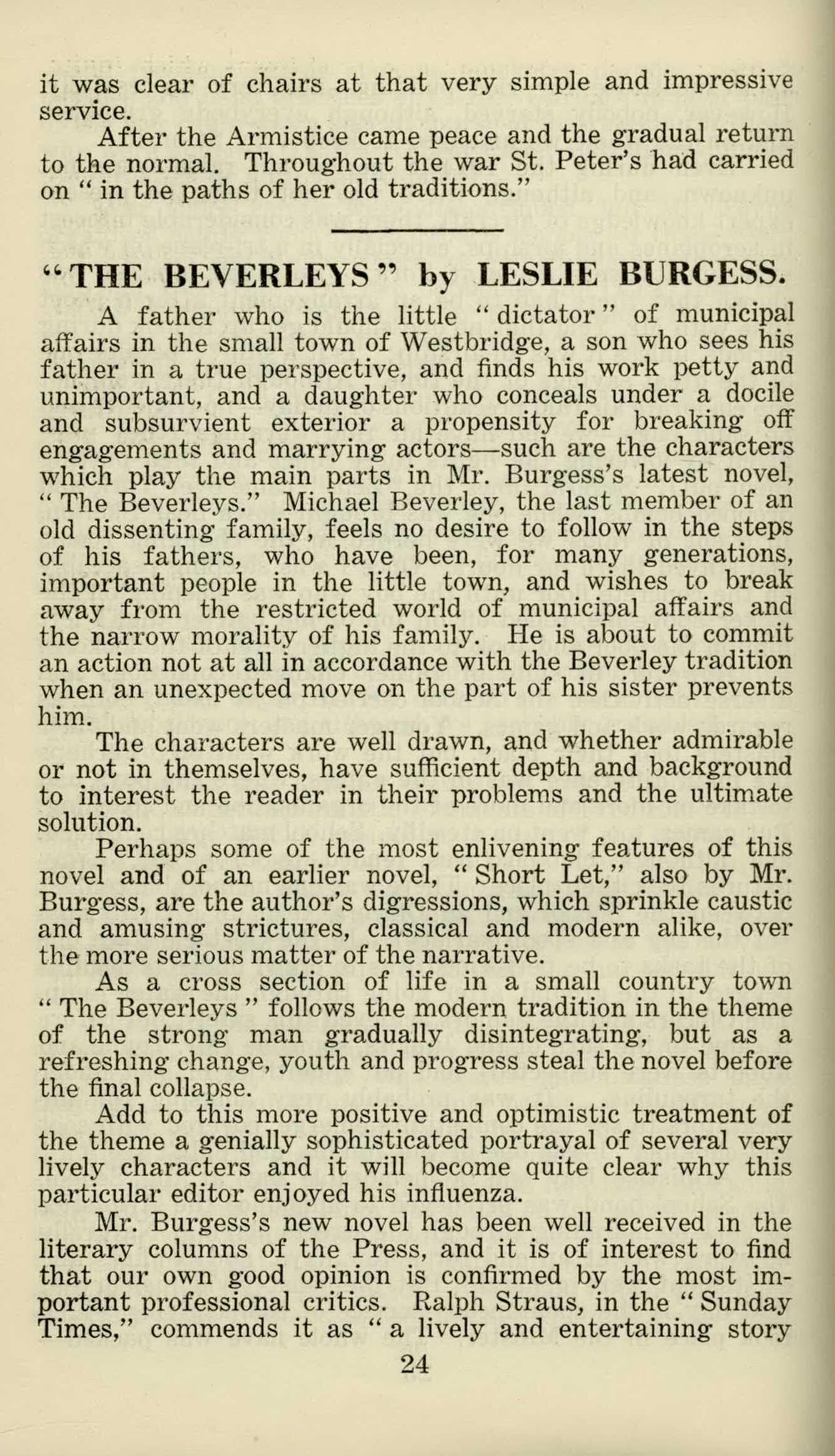
2 minute read
" The Beverleys," by Leslie Burgess
from April 1940
by StPetersYork
it was clear of chairs at that very simple and impressive service.
After the Armistice came peace and the gradual return to the normal. Throughout the war St. Peter's had carried on " in the paths of her old traditions."
A father who is the little " dictator " of municipal affairs in the small town of Westbridge, a son who sees his father in a true perspective, and finds his work petty and unimportant, and a daughter who conceals under a docile and subsurvient exterior a propensity for breaking off engagements and marrying actors—such are the characters which play the main parts in Mr. Burgess's latest novel, " The Beverleys." Michael Beverley, the last member of an old dissenting family, feels no desire to follow in the steps of his fathers, who have been, for many generations, important people in the little town, and wishes to break away from the restricted world of municipal affairs and the narrow morality of his family. He is about to commit an action not at all in accordance with the Beverley tradition when an unexpected move on the part of his sister prevents him.
The characters are well drawn, and whether admirable or not in themselves, have sufficient depth and background to interest the reader in their problems and the ultimate solution.
Perhaps some of the most enlivening features of this novel and of an earlier novel, " Short Let," also by Mr. Burgess, are the author's digressions, which sprinkle caustic and amusing strictures, classical and modern alike, over the more serious matter of the narrative.
As a cross section of life in a small country town " The Beverleys " follows the modern tradition in the theme of the strong man gradually disintegrating, but as a refreshing change, youth and progress steal the novel before the final collapse.
Add to this more positive and optimistic treatment of the theme a genially sophisticated portrayal of several very lively characters and it will become quite clear why this particular editor enjoyed his influenza.
Mr. Burgess's new novel has been well received in the literary columns of the Press, and it is of interest to find that our own good opinion is confirmed by the most important professional critics. Ralph Straus, in the " Sunday Times," commends it as " a lively and entertaining story 24










